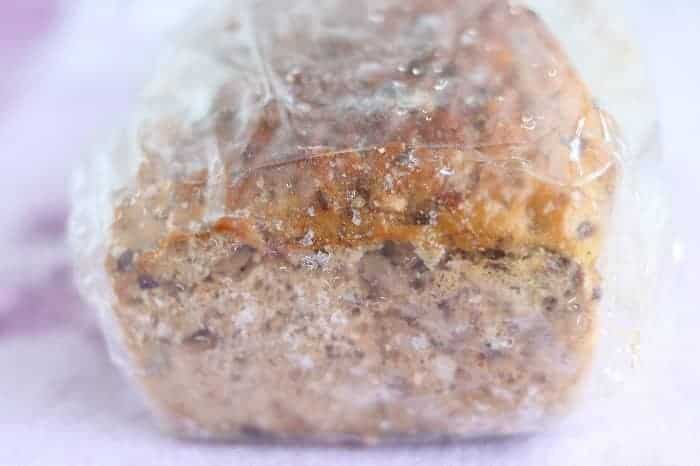Freezing bread causes cancer.. How true is this and how much we should be careful

Beware freezing the bread...it may cause cancer.” These phrases have been circulating for some time, warnings of the dangers of putting bread in the refrigerator, claiming that it turns into a deadly poison due to a change in its composition.
It also claims that plastic bags that are kept in the refrigerator leave "a very dangerous residue that interacts with the blood and releases the carcinogenic dioxin when exposed to low temperatures."
But science has another position, as all studies confirm that all the information contained in these publications is misleading and has no scientific basis.
Food is usually placed in the refrigerator in order to preserve its quality and extend its shelf life, and there is no scientific evidence that it causes cancer at all.
And bread, like other foods, has a longer shelf life, if it is placed in the refrigerator.
As for the reason for this, it is due to the fact that the chemical reactions of any food, including bread, become slow and the rate of bacteria multiplication in it decreases, so it is unreasonable for bread to become carcinogenic in this case, according to what Professor of Chemistry Sciences at the American University of Beirut Pierre Karam confirmed to AFP. Press.
He also explained that “from a chemical point of view, the cold does not affect the particles of the bread and does not change its composition or any of the other foodstuffs.”
What about the bags?
As for the interaction of plastic bags in the refrigerator and releasing the carcinogenic dioxin, this claim is also false.
He emphasized that plastic bags cannot release dioxin unless they are exposed to burning or a chemical process. He added, "What applies to foodstuffs in the refrigerator also applies to other objects such as plastics, as the refrigerator slows down chemical reactions in them."
It is noteworthy that dioxins are persistent environmental pollutants and a group of chemically related substances that are highly toxic, resulting from burning processes and some industries that use chemicals. It can also occur naturally, in cases of volcanic eruptions and forest fires.
All of this releases dioxins into the air, so that they settle on grass or in water, for example, and are transferred to animals, which eat them and accumulate in their intestines and fatty tissues.
People are often exposed to dioxins through meat, dairy products, and fish, and they are not easily eliminated from their bodies.
Recommendations for keeping bread in refrigerators?
As for the best ways to keep bread in the refrigerator, Lebanese nutritionist Chantal Hanna explained that it is best to keep it in a plastic bag or in an airtight container, provided that these containers comply with food safety standards.
She also confirmed that the refrigerator preserves the quality of the bread and helps extend its shelf life.
In turn, Bashir Hojeij, a specialist in the bread industry and an official in the “Bake Lab” laboratory in Lebanon, explained that the refrigerator preserves the properties of bread appropriately and does not cause it to spoil. He explained in detail: “After the bread comes out of the oven, a natural process begins that affects its taste, moisture and texture. This process is called in English as Bread staling.”
In addition, he added that if the bread is not consumed in a short period of time, its taste will change and spoil. He added, "But if you put the bread in the refrigerator in an airtight container or in a well-closed plastic bag, this process will stop and the bread will retain its characteristics."





